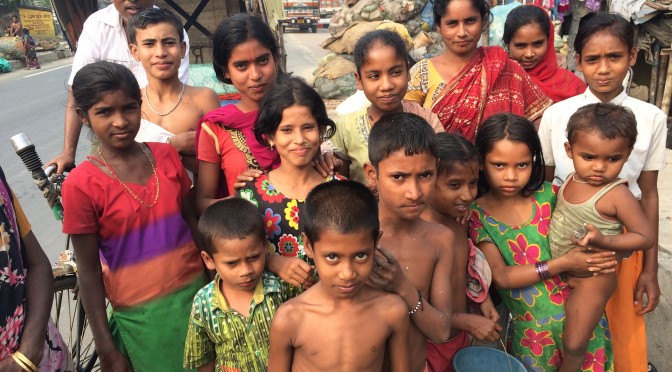I stand in a shower of full moon beams, listening to the prayers vibrating from the nearby loudspeaker of the temple. The shadows of the trees in the garden dance on the ground.
An old woman, her face wrinkled with sunshine and her head covered in a faded yellow scarf, approaches me. She addresses me in Punjabi, and then Hindi. I shake my head and say I do not speak either language.
She rolls her tongue around the few English words she knows. “Country?” is the first one.
“Ca-ta-lonia,” I answer slowly. She won’t know where that is; few do.
She then uses universal sign language, stretching the palm of her hand near her thigh, to represent what I take as “small people.”
“Children?” She smiles with anticipation.
“No.” I match her smile.
“No children?” Her smile twists into confusion, and a look of complete incomprehension hardens the features around her cheeks.
“No.” My voice is firm, and my look, defiant.
Her eyes tell me she doesn’t understand my world. My eyes tell her I don’t really want to understand hers.
I have had this conversation too many times to count these last 15 months. And, I am weary of it.
Across Asia, from rural Bangladesh to towns in Tajikistan and desert stretches in Uzbekistan to this small town in India, people — men and women, teenagers and elderly walking with canes — have an obsessive preoccupation with my and Lluís’ reproductive capabilities.
In their lives, procreating is the only thing they know. They marry off their young people before they are legally able to drink in some countries, and pressure them to have children right away–one, two, five, six in quick succession.
In our lives, children get in the way of living. I discovered in my early 30s I was being swallowed by society’s dream of a two-kid family with a house and white picket fence. I woke up, and recast my hopes with rucksack on my back. I haven’t looked back since.
Still, the simple question “Children?” irritates me. Do we have no other common ground as women, and as humans, to stand on? Just because we have a biological endowment to flood the world with humanity doesn’t mean we should. These words would be lost in translation, so I don’t speak them.
I take a breath, and give my smile space to return. I must create the common ground I want.
The woman takes my hands in hers and mumbles words I don’t understand. She leans in to hug me, and I lean back.
I don’t know if she feels sorry for me, or is happy to see me in her village, a place where few tourists come. I don’t know if I feel bothered by her preconceived expectations, or glad that I don’t have to explain myself.
We stand together a few moments longer, our shadows dancing with the shadows of trees.
We look at each other before saying goodbye. We are two women standing in the moonlight, listening to prayers for a life well lived.








Well said. Thanks again.